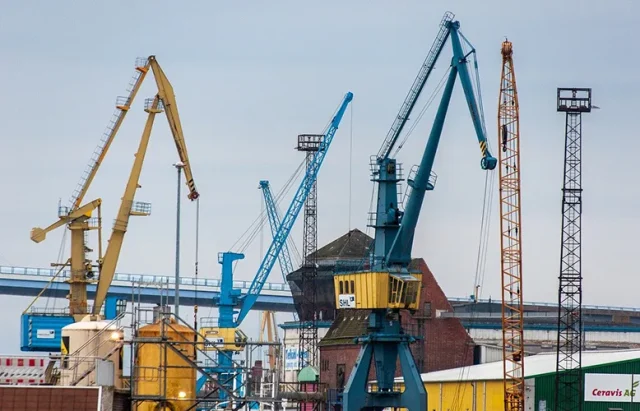
The ports of the United Kingdom stand as silent sentinels at the crossroads of global commerce, vital arteries through which flows the lifeblood of international trade. From the historic ports of London and Liverpool to the modern giants of Felixstowe and Southampton, each harbor tells a story of economic prowess, maritime heritage, and strategic significance.
A Legacy of Maritime Excellence
The UK’s maritime history is rich and deeply intertwined with its identity as an island nation. Ports such as Liverpool, once the gateway to the British Empire, continue to play a pivotal role in the country’s economic landscape. Liverpool’s docks, established in the 18th century, were instrumental in the rise of Britain as an industrial powerhouse. Today, they remain a key hub for container traffic and a crucial link in global supply chains.
London, with its iconic Tower Bridge and bustling docks, maintains its status as a leading financial and shipping center. Despite the transformation of its waterfront into commercial and residential spaces, the Port of London still handles a diverse range of cargo, from luxury goods to industrial materials.
Modern Marvels: Felixstowe and Southampton
In contrast to the historical ports, Felixstowe and Southampton represent the cutting-edge of modern maritime infrastructure. Felixstowe, located on the east coast of England, is the biggest port in the UK and one of the busiest in Europe. Its state-of-the-art facilities can accommodate the largest container vessels in the world, handling millions of containers each year. This strategic advantage has solidified Felixstowe’s position as a crucial link in global trade routes, connecting the UK to markets across Asia, Europe, and beyond.
Southampton, on the south coast, is another major player in the UK’s port industry. Known as the “Gateway to the World,” Southampton boasts a deep-water harbor capable of receiving the largest cruise ships and cargo vessels. The port’s extensive facilities cater to a wide range of industries, including automotive, oil, and gas, making it a vital cog in the country’s economy.
Challenges and Opportunities
Despite their importance, UK ports face significant challenges in the 21st century. Brexit has brought about changes in trade regulations and customs procedures, necessitating adjustments in port operations to ensure the smooth fulfillment of trade orders. Ports such as Dover, a key link to continental Europe, have had to adapt to increased customs checks and border controls, impacting efficiency and throughput.
Environmental concerns also loom large over the port industry. Ports are major sources of emissions and face pressure to reduce their carbon footprint. Initiatives such as shore-side power for cruise ships and investments in green technologies aim to mitigate these impacts while ensuring sustainable growth and meeting fulfillment demands effectively.
Looking Ahead: Innovation and Expansion
To remain competitive on the global stage, UK ports are embracing innovation and expansion. Investments in digital technologies, such as automated cranes and real-time cargo tracking systems, enhance efficiency and streamline operations. The development of new terminals and infrastructure projects, such as the Thames Freeport and Liverpool2 container terminal, underscores the industry’s commitment to growth and adaptability.
Moreover, partnerships between the public and private sectors are driving forward ambitious plans for port development. Collaborations in research and development are paving the way for cleaner, more efficient port operations, while initiatives to upgrade rail and road connections aim to improve connectivity and reduce congestion.
Conclusion
In conclusion, the ports of the United Kingdom are more than mere points of entry and departure; they are dynamic hubs of economic activity and global connectivity. From the storied docks of Liverpool to the high-tech terminals of Felixstowe, each port plays a vital role in sustaining the country’s prosperity and shaping its future. As the UK navigates the challenges and opportunities of a rapidly evolving global economy, its ports stand ready to forge new pathways and maintain their position as world-class gateways to trade and commerce.





